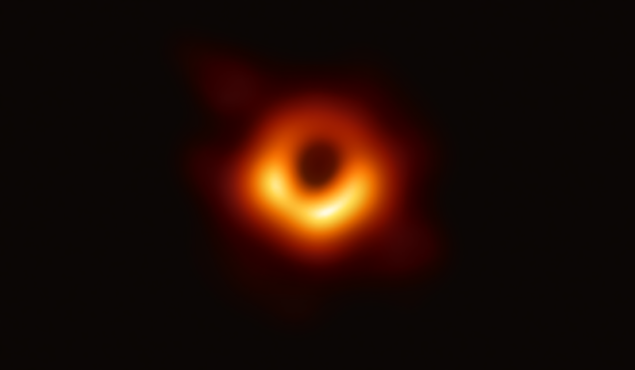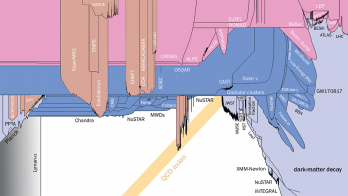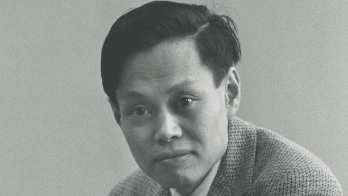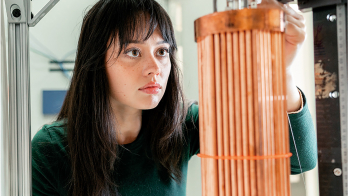
The first direct image of a black hole, obtained by the Event Horizon Telescope (EHT) collaboration earlier this year, has been recognized by the 2020 Breakthrough Prize in Fundamental Physics. The $3 million prize will be shared equally between 347 researchers who were co-authors of the six papers published by the EHT collaboration on 10 April.
The EHT is a network of eight radio dishes in Antarctica, Chile, Mexico, Hawaii, Arizona and Spain that creates an Earth-sized interferometer. Its ultra-high angular resolution images of radio emission from a supermassive black hole at the heart of galaxy M87* opened a new window on black holes and other phenomena. Recently, a team at Brookhaven National Laboratory used the EHT image to disfavour “fuzzy” models of ultra-light boson dark matter.
Also announced were six New Horizons Prizes worth $100,000 each, which recognize early-career achievements in physics and mathematics. In physics, Jo Dunkley (Princeton); Samaya Nissanke (University of Amsterdam) and Kendrick Smith (Perimeter Institute) were awarded for the development of novel techniques to extract fundamental physics from astronomical data. Simon Caron-Huot (McGill University) and Pedro Vieira (Perimeter Institute) were recognized for their “profound contributions to the understanding of quantum field theory”.
The Breakthrough Prize was founded in 2012 by former physicist and entrepreneur Yuri Milner, with sponsors including Google’s Sergey Brin and Facebook’s Mark Zuckerberg. In August, a Special Breakthrough Prize in Fundamental physics was awarded to Sergio Ferrara, Daniel Freedman and Peter van Nieuwenhuizen for the discovery of supergravity.
All prize recipients, along winners in mathematics and biology, will receive their awards at a ceremony in California on 3 November.







